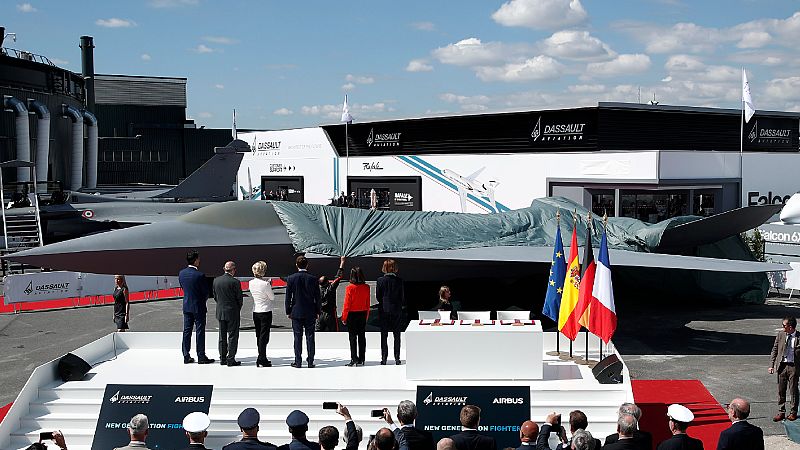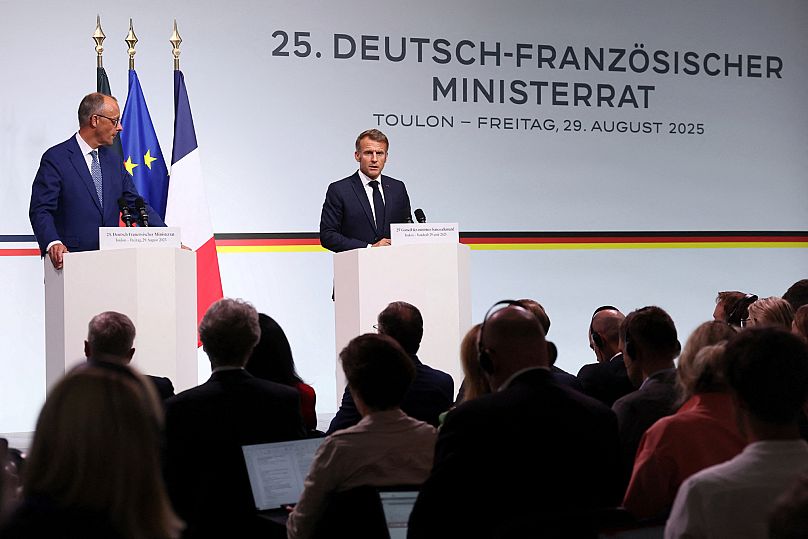Europe's new fighter jet at risk amidst Franco-German ownership disputes

Uncertainty is hanging over the Future Combat Air System (FCAS), a joint project between France, Germany and Spain, that aims to develop a sixth-generation fighter aircraft supported by interconnected drones within a combat cloud.
The idea, launched in 2017 and costing at least €100 billion, aims to strengthen European defence.
Last week, Reuters reported that the German Defence Ministry accused French fighter jet manufacturer Dassault of blocking the project after its CEO, Eric Trappier, called for greater decision making powers in the project's next phase.
Jacob Ross, a researcher at the German Council on Foreign Relations (DGAP), told Euronews that despite Dassault's wishes, other parts of the project are inextricably linked to Germany's Airbus and Spain's Indra, the two other companies involved in the process.
"There are other parts, other pillars of this FCAS project, for example a combat cloud, i.e. a digital infrastructure for exchanging information, for connecting to other aircraft, and in particular to unmanned aircraft, drones, which should also be developed in particular by Airbus and the German side," Ross said.
Could Germany withdraw?
According to Ross, some voices in Berlin have threatened to slam the door on the programme.
Germany could turn to a rival project for a sixth-generation fighter aircraft, the Tempest, developed by Italy, the UK and Japan.
Other transatlantic-minded German voices are arguing in favour of buying more American F-35s, to the detriment of Europe's strategic autonomy.
"It will have a cost for the bilateral Franco-German relationship, but also for European sovereignty in general, since the FCAS and its sister project, the MGCS, i.e. the tank of the future, were in a way the two main projects of this idea, of this vision of a more sovereign Europe," Ross said.
Last week, German Chancellor Friedrich Merz and French President Emmanuel Macron met in Toulon for the Franco-German Council of Ministers meeting.
Both reaffirmed their commitment to the project, but hinted that adjustments could be made.
Today


